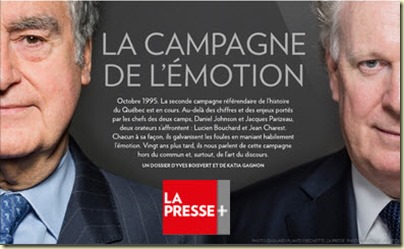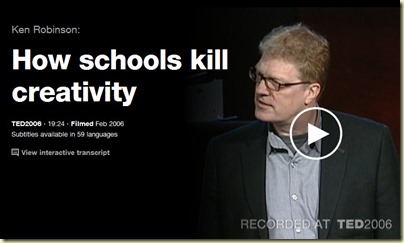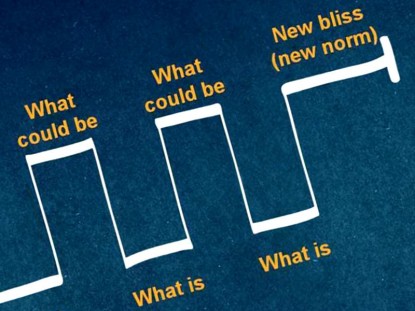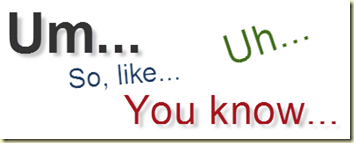Information
- About our club (EN)
- Notre club (FR)
- Historical Events / Faits marquants
- Tools for our members (EN)
- Ressources pour nos membres (FR)
Links / Liens
Archives
- April 2024
- March 2024
- February 2024
- January 2024
- December 2023
- November 2023
- October 2023
- September 2023
- August 2023
- June 2023
- May 2023
- April 2023
- March 2023
- February 2023
- January 2023
- December 2022
- November 2022
- October 2022
- September 2022
- June 2022
- May 2022
- April 2022
- March 2022
- February 2022
- January 2022
- December 2021
- November 2021
- October 2021
- September 2021
- August 2021
- June 2021
- May 2021
- April 2021
- March 2021
- February 2021
- January 2021
- December 2020
- November 2020
- October 2020
- September 2020
- August 2020
- June 2020
- May 2020
- April 2020
- March 2020
- February 2020
- January 2020
- December 2019
- November 2019
- October 2019
- September 2019
- June 2019
- May 2019
- April 2019
- March 2019
- February 2019
- January 2019
- December 2018
- November 2018
- October 2018
- September 2018
- June 2018
- May 2018
- April 2018
- March 2018
- February 2018
- January 2018
- November 2017
- October 2017
- September 2017
- June 2017
- May 2017
- April 2017
- March 2017
- February 2017
- January 2017
- December 2016
- November 2016
- October 2016
- September 2016
- August 2016
- June 2016
- May 2016
- April 2016
- March 2016
- February 2016
- January 2016
- December 2015
- November 2015
- October 2015
- September 2015
- August 2015
- June 2015
- May 2015
- April 2015
- March 2015
- February 2015
- January 2015
- December 2014
- November 2014
- October 2014
- September 2014
- August 2014
- June 2014
- May 2014
- April 2014
- March 2014
- February 2014
- January 2014
- December 2013
- November 2013
- October 2013
- September 2013
- June 2013
- May 2013
- April 2013
- February 2013
- January 2013
- December 2012
- November 2012
- October 2012
- September 2012
- June 2012
- May 2012
- April 2012
- March 2012
- February 2012
- January 2012
- December 2011
- November 2011
- October 2011
- September 2011
- August 2011
- May 2011
- April 2011
- March 2011
- February 2011
- January 2011
- December 2010
- October 2010
- September 2010
- August 2010
- June 2010
- May 2010
- April 2010
- March 2010
- February 2010
- January 2010
- November 2009
- October 2009
- September 2009
- July 2009
- June 2009
- May 2009
- April 2009
- March 2009
- February 2009
- January 2009
- December 2008
- November 2008
Dans un article publié par La Presse pour commémorer le 20e anniversaire du référendum de 1995, Lucien Bouchard et Jean Charest parlent parmi autres de l’art du discours.
——————————————–
Quelques citations de l’article sur Lucien Bouchard :
- “J’ai toujours été fasciné par l’éloquence, échanger avec le public, convaincre…”
- “Dans ces rares moments, ça vient chercher tout ce qu’il y a en nous-même. Ça sort. Toutes nos sensibilités profondes, tout ce qui nous rattache au Québec, mes souvenirs d’enfance, mes études, mes références littéraires, historiques… Ça sort, ça sort… Ça se résout en un discours, en l’expression d’une passion.”
- “J’avais l’impression que je disais aux gens ce qu’ils sentaient. Je me sentais comme eux, j’étais comme eux.
En même temps je savais qu’on ne peut pas être purement émotif. Il y a un dosage de rationnel et d’émotion.” - “J’avais l’expérience de la parole. Ce n’est pas simple. Il y a toutes sortes de paroles et d’orateurs. Il faut en rater aussi, pour apprendre !”
Voici une dernière citation, probablement en référence à Twitter:
- “L’art du discours a bien changé.
Mais quand on vous oblige à vous exprimer en 140 caractères… essayez donc de soulever une foule !”
——————————————–
Quelques citations de l’article sur Jean Charest :
- “L’art de la rédaction, c’est des phrases courtes et get to the point. Il faut se dire que les gens à qui on s’adresse vont retenir une ou deux idées d’un discours.”
- “Et celui qui livre le discours a une obligation envers la salle : être clair, utiliser un langage que les gens comprennent.”
- “Quand on se lève pour parler, il faut se dire : c’est mon moment. Il faut l’habiter. Et il faut vivre avec les silences. C’est très puissant, dans un discours, un silence. Les gens ont peur de ça au début, mais les plus grands orateurs, comme Martin Luther King, maîtrisent les silences.”
- “Je fais mes discours avec mes convictions et mes émotions à moi. Une émotion qui est sincère, sentie, et qui répond à ce que l’auditoire veut.”
- “Le symptôme de celui qui n’est pas préparé, c’est le discours trop long.”
Voici un exemple d’une situation que nous voudrions tous éviter.
— Débat : Élections fédérales 2015 —
Un article dans La Presse décrit bien l’évènement :
…un débat diffusé à la télévision régionale de la Rive-Sud, dans lequel les questions posées par l’animatrice ont fait figer le candidat Chicoine comme un chevreuil devant les phares d’une automobile. Hésitant, le politicien a cafouillé, laissant passer de longues secondes avant d’ouvrir la bouche.
Joint hier, le candidat a expliqué que le stress de passer à la télévision lui a fait perdre ses moyens. «C’était ma première expérience à la télé et j’ai figé, tout simplement. Je suis une personne timide, et je savais que j’allais devoir vivre des moments de stress. J’apprends à la dure…»
Comment est-ce que Toastmasters peut vous aider à éviter une situation semblable?
Voici deux manières :
1) À chaque réunion, nous avons une session d’improvisation, dans laquelle les membres pratiquent de devoir répondre de manière spontanée à une question imprévue. Au fil du temps, cela nous aide à être de plus en plus à l’aise à répondre sur-le-champ et avec confiance.
2) Un des livres de projets avancés de Toastmasters, “Communicating on Television”, nous donne des suggestions et des exercises pour parler à la télévision. Par exemple, un des projets consiste à simuler une entrevue à la télévision, dans laquelle il faut pouvoir donner son opinion ou exprimer son point de vue dans un court délai.
=====================================
Aimeriez-vous en savoir plus sur Toastmasters? Venez visiter notre club St-Lawrence Toastmasters à Montréal.
Since the theme of our next Toastmasters meeting will be “Teachers”, we felt it might be fun to post the following TED Talk. (We actually wrote a post about it a few years ago, but it continues to inspire us, just like many teachers do!)
This is a wonderful talk given by Sir Ken Robinson at a TED annual conference (TED stands for Technology, Entertainment, Design):
How schools kill creativity
“Sir Ken Robinson makes an entertaining and profoundly moving case for creating an education system that nurtures (rather than undermines) creativity“.
The duration of the presentation is about 20 minutes, which at first may seem long but is well worth it, especially for Toastmasters looking to be inspired by what an inspirational speech can do. Sir Ken gives such a remarkable talk that after the first few seconds you can’t help but be absorbed by his speech.
This talk has so many points that can inspire a Toastmaster: a great beginning and end, humour, story-telling, excellent choice of words, clear organization, great persuasion. All this communicated in a most effective manner. Enjoy!
———————————————————-
Are you interested in knowing more about how Toastmasters can help you prepare your own inspiring speeches? Come visit our club located in Montreal!
Here is the programme for the Toastmasters meeting of January 27, 2015.
Do you sometimes get nervous preparing a speech, afraid that you will forget what you need to say?
Do you sometimes actually forget some of the things you wanted to say during your speech?
Do you sometimes wish there was an easy and effective way to remember the key points of your speech?
Here is an interesting video giving some tips and hacks on helping to remember your presentation before you give a speech.
This video podcast is from The School of Greatness, where founder Lewis Howe interviews Jim Kwik, a renowned memory coach and learning expert.
———————————–
Are you interested in finding out how you can improve your public-speaking skills? Come visit St-Lawrence Toastmasters Montreal!
Here is the Toastmasters programme for the meeting of January 20, 2015.
The title of your presentation, your teachings, your call-to-action and your visual support are some of the key elements to get right in order to build a compelling presentation.
Dan Martell, a Canadian entrepreneur and speaker, shared his recipe for creating great speeches in 15 minutes. Here are some key takeaways we can all apply at Toastmasters:
Title of your talk
Struggling to find a great title? Try searching online magazine covers related to your topic. For instance, if your presentation is about photography, try googling “photography magazine cover“.
- Teachings
One of the best ways of teaching something is by telling a story.
First, open your story with a powerful statistic or example that can reinforce your point. For instance, for a talk on Human Resources: “People don’t quit their companies. They quit their boss.”
Then, share an experience of yours related to your point. The more vulnerable the story, the more universal the appeal.
Finally, don’t forget to end your story with a resolution or explain how the lesson learned can help your audience achieve or avoid a similar fate in the future.
- The smart way to build slides
When creating slides, less is better. You should aim to have as few slides as possible, and for each slide, as less content as possible. A relevant and powerful image could be enough. If you want, you can also add a short but significant text.
For instance:
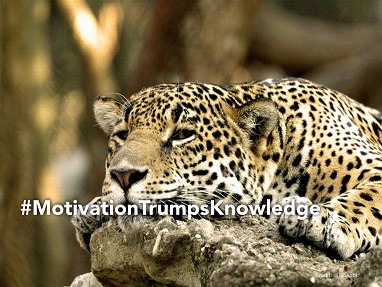
To get all the details, we strongly encourage you to read the complete blog post: How to Create a Great Presentation in Just 15 Minutes
—————————————–
(Also, if you are want more advice on preparing good slides, check out the video of a Toastmasters workshop entitled “Deliver More Effective Powerpoint Presentations”.)
—————————————–
If you would like to put those techniques to practice, don’t hesitate to visit us at St. Lawrence Toastmasters in Montreal.
Here is the programme for the Toastmasters meeting of November 4.
Have you ever wished to connect more with your audience or to be more persuasive when you speak?
In this TED Talk, Julian Treasure explains how to talk with more empathy and how you can use your voice to create emotion.
This is a perfect reminder to refer to when preparing your Toastmasters Project 6 “Vocal Variety”.
—————————————–
Here is the programme for the Toastmasters meeting of October 28.
Last week Emma Watson (well-known actress for her role in Harry Potter movies) delivered a powerful and moving speech at the United Nations, inviting men to join in the fight for gender equality.
The Huffington Post mentions that in her role as the UN Women Goodwill Ambassador, she spoke about how impossible it is to achieve equality of the sexes if only one sex participates in the fight. It quotes, “I have realized that fighting for women’s rights has too often become synonymous with man-hating. If there is one thing I know for certain, it is that this has to stop.”
What can we as Toastmasters learn from Emma Watson’s speech?
Her speech actually meets several of the objectives that we Toastmasters give ourselves when preparing speeches based on the Competent Communication manual. Here are just a few examples:
Some objectives from Project 10: Inspire Your Audience
- To inspire the audience by appealing to noble motives and challenging the audience to achieve a higher level of beliefs or achievement.
Some objectives from Project 9: Persuade with Power
- Persuade listeners to adopt your viewpoint or ideas or to take some action.
- Appealing to the audience’s interests.
- Use logic and emotion to support your position.?
Some objectives from Project 7: Research Your Topic
- Carefully support your points and opinions with specific facts, examples, and illustrations gathered through research.
Some objectives from Project 6: Vocal Variety
- Use pauses to enhance your message.
Some objectives from Project 2. Organize Your Speech
- Select an appropriate outline which allows listeners to easily follow and understand your speech.
- Create a strong opening and conclusion
We particularly enjoyed hearing her own personal anecdotes, for example her experience when she was 8 years old, being told she was “bossy” because she wanted to direct the plays that they would put on for their parents. Personal stories such as these help to reach out more effectively to the audience.
Next time you come across an interesting speech, try to think of what it is that made the speech so effective. This can help you more effectively learn how to apply similar techniques that we learn at Toastmasters for your own speeches.
—————————————–
Interested in knowing more about how Toastmasters in Montreal can help you communicate more effectively in public and become a more effective leader? Feel free to come visit us.
What do the "I have a dream" speech and Steve Jobs’ iPhone launch presentation have in common?
This TED Talk from Nancy Duarte reveals the common architecture to all great presentations. You will learn how some of the greatest speakers use the "what is" and "what could be" to move their audience toward a powerful call-to-action.
The secret structure of great talks by Nancy Duarte
Are you interested in making your speeches more persuasive and well structured in a friendly and supportive environment?
Then visit St-Lawrence Toastmasters in Montreal. Here is the programme for the meeting of May 20, 2014.
Here is an interesting article giving useful tips on how to avoid using some of the dreaded filler words “Um” and “Uh” when speaking.
“Becoming Well-Spoken:
How to Minimize Your Uh’s and Um’s”
Although it’s from the website “The Art of Manliness", the article can apply to both sexes. It explains why we tend to use filler words and how they can be detrimental, and then gives suggestions that can help to minimize the use of such fillers.
Here is another interesting post related to the same subject:
“Um, Uh, and You Know:
Killer Fillers in Public Speaking”
Enjoy the read!
————————————
Are you interested in finding out how Toastmasters can help you minimize Um’s and Uh’s when speaking?
Or how about helping to reduce anxiety and increase your confidence when speaking in public?
Then visit St-Lawrence Toastmasters in Montreal. Here is the programme for the meeting of March 25, 2014.
We recently had the privilege of hearing a speech from our long-time Toastmasters member Christian, based on The Better Speaker’s Series. He talked about how to prepare a well-crafted conclusion that gives a sense of closure by summarizing the main points and makes an impact for a long-lasting impression by your audience.
Christian kindly prepared an article on this subject so that it can be of benefit to all of us Toastmasters.
Here is the article prepared by Christian :
